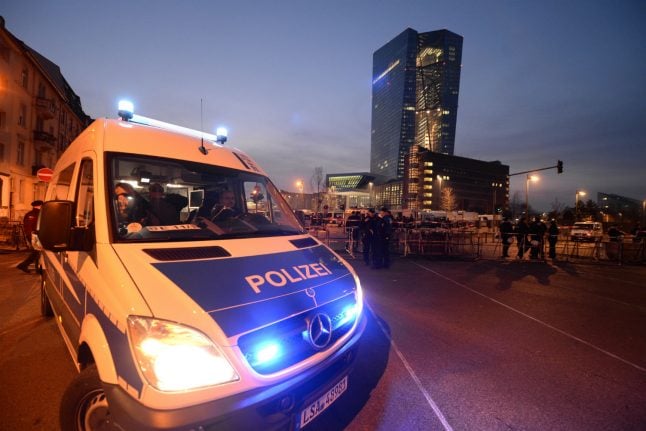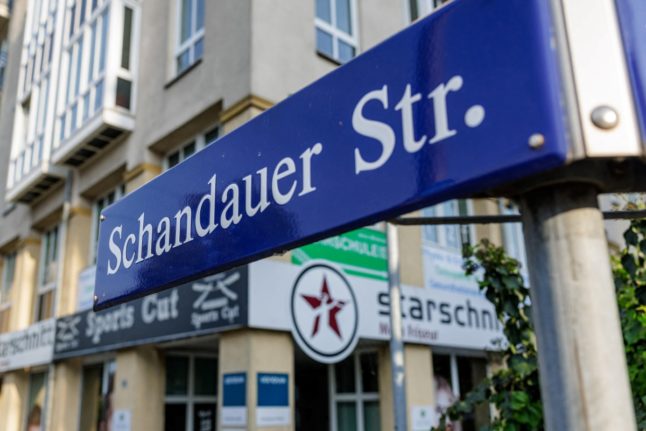This article is available to Members of The Local. Read more Membership Exclusives here.
Every year almost without fail Frankfurt is named Germany’s most dangerous city, due to the fact that it has the highest level of criminality per head.
Criminal statistics released on Tuesday show that 14,864 crimes were committed in the city on the Main for every 100,000 of its citizens – a figure that once again bestowed it with the title of Germany's crime capital
Hanover with 14,616 crimes per 100,000 inhabitants came second, while Berlin dropped to third after topping the chart in 2016. All 39 cities with a population of more than 200,000 are recorded in the statistics.
Berlin's “win” in 2016 aside, Frankfurt has been named the city with the most crime every single year for decades.
But explanation for this strangely consistent performance has nothing to do with knife attacks on its streets or bank robberies in its financial district.
The cause of Frankfurt’s notoriety is much more mundane, albeit reassuring for the residents of the city on the Main, a spokesperson for the city police told The Local.
FOR MEMBERS: How Frankfurt is selling itself to Brexit bankers
“Calling Frankfurt Germany’s most dangerous city is completely wrong,” said Andre Sturmeit. “The actual reason why there is more criminality recorded here than in any other city is because we have a globally successful airport.”
All crime at the airport – Germany's largest and Europe’s fourth largest – is compiled in the city’s official annual statistics, completely skewing the overall picture.
If someone arrives at the airport without the necessary paperwork, that is recorded in the city crime figures. Similarly, if a suitcase is stolen at the airport, that also counts as crime committed in Frankfurt.
Why, one might then ask, is Munich home to Germany's second largest airport but still manages to consistently be named the safest city in the country? Tuesday's statistics show that in 2017 the Bavarian capital was once the city with the lowest level of recorded crime – just 6,627 acts of illegality were recorded per 100,000 residents.
“The difference is that Munich's airport is outside the city boundaries in Erding,” Sturmeit explained. “That means recorded crime there is not counted as taking place in Munich.
“If Munich airport was counted in the city’s statistics we would see a similar phenomenon to what we have here,” he claimed.
Sturmeit also pointed out that Frankfurt has an unusually large number of commuters – 300,000 people travel into the city to work every day. That means that during the day the population of Frankfurt swells from 700,000 to roughly a million. But when crimes per head statistics are recorded the overall number of crimes in the city is given as a fraction of the permanent city population, not the larger transient one
“When these factors are taken into consideration Frankfurt comes somewhere in the middle of the rankings,” Sturmeit explained. “Frankfurt is no more or less dangerous than any other city of its size in Germany.”
SEE ALSO: 10 facts you probably didn't know about Frankfurt (even if you live there)



 Please whitelist us to continue reading.
Please whitelist us to continue reading.
Member comments